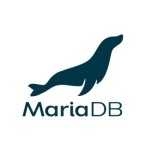MySQL 5.6 has a great many new features, including, but certainly not limited to, a number of performance improvements.
However, besides the widely talked-about features such as InnoDB, there's also support for full text search, optimizer, performance schema improvements and GTID.
In order to change the size of InnoDB transaction log files, you have to follow this procedure. Beware that if you don’t follow these instructions step-by-step, your server may not restart or rather it will start with InnoDB storage engine disabled and an error in the logs. So, here’s what you want to do:
1. change (or add) the following variable in my.cnf: innodb_log_file_size = ..
2. stop MySQL server
3. make sure you see a successful shutdown of InnoDB in the MySQL error log
4. move away old log files (at this point I have to double check where they are) by running the following command:
mv /var/lib/mysql/ib_logfile* /tmp/
5. start MySQL server – it should take a bit longer to start because it is going to be creating new transaction log files
6. When you’re positive that MySQL server has started successfully, you can remove the old log files:
rm /tmp/ib_logfile*



















also with the new 5.7 edition added some other fixes , update, firewall , etc. You can check the new version on their page.